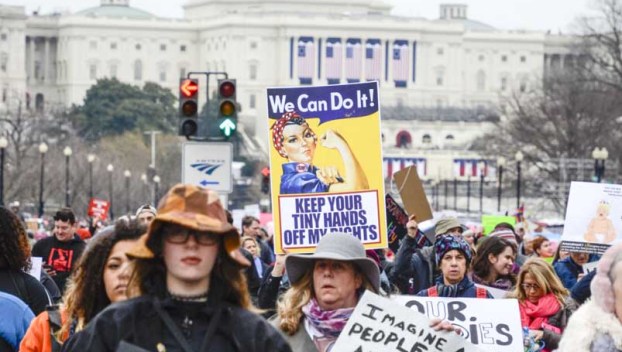
Cnhi Network
Marchers overwhelm Washington one day after Trump’s inauguration
WASHINGTON - Fueled with rage over lewd remarks uttered by Donald Trump during his presidential campaign, by his ... Read more

WASHINGTON - Fueled with rage over lewd remarks uttered by Donald Trump during his presidential campaign, by his ... Read more